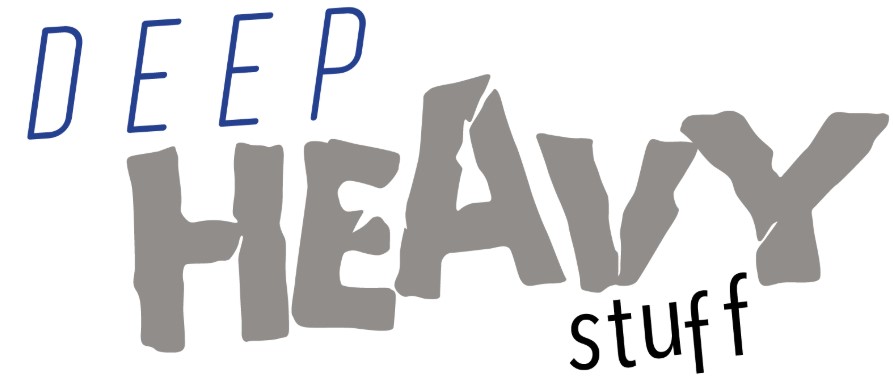The previous post was about personal loyalty. This one deals with corporate loyalty. Well, not really, because corporate loyalty does not exist.
(I am defining “corporate” as large companies
with more than, say, 100 employees. Company loyalty, at smaller organizations,
can exist in some form)
Now, I know that some of you firmly believe it does exist.
But believing in corporate loyalty is the adult equivalent of believing in
Santa Claus. Like Santa, assuming that your corporation is loyal provides you
with a warm, magical feeling. It is so comforting to think your employer is
looking out for you and values you way beyond your contribution to the
firm. It is so uplifting and reassuring;
it eliminates your fears knowing your job is secure and helps you sleep soundly
every night.
Now please don’t respond to this concept with arguments
about how corporate loyalty “does too exist!” I will view these objections with
the same amusement I would listen to a five-year-old explain why Santa Claus is
real. Yes, you can believe that corporate loyalty really exists. But like Santa
Claus, it doesn’t, and I hate to be the one who burst your bubble.
The purpose of corporations is to generate profit. You are
a resource that they use, or employ, to create that profit. Their job is to
make money; you are only the means to make that money. As soon as your cost
exceeds your benefit, you will be discarded. The difficulty here is you are
trying to maximize your salary, which in turn increases your cost. This means
the more money you make; the more your job is in danger.
Now there is some loyalty within corporations, but it is
personal-based loyalty, not corporate. Usually, the person who hired you is
loyal to you up to a point. But when your boss leaves the company or takes a
new, non-linear position, your job is in immediate danger. Your new boss has no
loyalty or vested interest in you.
The corporation wants you to believe they are indeed loyal
to you because then you will be loyal to them, which is in their best interest.
Remember, your parents wanted you to believe in Santa Claus, too. And it was a
big, whopping lie.
Now I am not saying corporations should be loyal or even more loyal to their employees – they just aren’t. Again, it’s that profit thing. I won’t argue for the existence of corporate loyalty, just as I would not say that Santa should exist. It just doesn’t, and you are naïve if you think it does. And unlike Santa, there are costs to believing this myth.
Then What Should I Do?
If there is no corporate loyalty, then make decisions based
on what’s right for you, not good for them. Do not sacrifice your health for
them. Do not sacrifice your marriage and family for them. Do not sacrifice your
soul for them. You owe them your services exchanged for your salary. It is a standard
business exchange, nothing more.
Be aware that you are fully responsible for managing your
career. Your career path is in your hands. You alone are responsible for your
success.
Therefore, always be planning your next step within the
corporation or outside of it. Be developing all the skills you can because
these skills are transferrable in ways you can’t even imagine. Acquire all the
relevant education that is available to you. Focus it intently on where you
want to go and what you want to do.
Always have a Plan B. A new boss, a buyout, a merger, an
internal attack by a coworker, getting blamed for an error you did not make,
and you are toast. But, but – But there is no loyalty --- none.
Continuously be planning your next move. Remember, the
company is already playing the game. They are managing you. And they are trying
to maximize your value, often at your expense. You better learn how to play
this game, because they certainly are skilled at playing it. So, if you pretend
the game doesn’t exist, then you literally get played. Like an experienced
chess player, you need to be thinking several moves ahead.
Build a network of contacts before you need them. You’ve
already heard that networking is important, but you’ve ignored it because it
seems awkward, takes time, and is unnecessary to your current situation.
However, it needs to be part of your Plan B. It is essential to meet and
connect with as many people as possible to help you advance in the next step
in your career plan. By networking, you are investing in yourself, just like
education. If you wait until you need a network before building one, it costs
you valuable time. It is challenging to drink from the well while you are
drilling it.
Apology
I feel like the parent who has just destroyed the magic of
Christmas for their child. Christmas wasn’t the same after you learned the
truth, was it? But the deep, heavy reality is, corporate loyalty does not
exist. It makes us feel good about our career choices. It provides joy when
good things go our way at work. It provides us with the comfort of security,
which reduces our anxiety. But it is a false security. The most dangerous lies
are the ones that we most want to believe. And I am sorry to have to reveal the
truth about this one.







